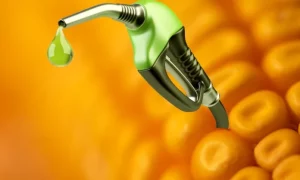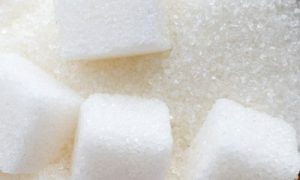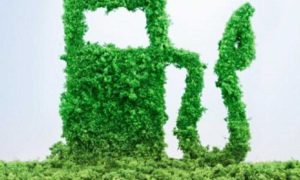Fermenstation’s zero-waste, rice-derived ethanol for cosmetics

Astute healthcare consumers check ingredients for non-toxic chemicals and environmental impact. Fermenstation, a 15-year-old company, addresses these concerns by producing ethanol from organic rice for cosmetics using a zero-waste model. Byproducts from ethanol production are recycled into animal feed, and the manure is used on farms. This approach aligns with the global zero-waste movement, which aims to minimize waste and environmental harm through innovative technologies and sustainable practices.
For astute healthcare product consumers, checking ingredients for non-toxic chemicals that can be harmful to our bodies is a must. Inspecting components that can hurt the environment should be contemplated as well.
After all, some elements, such as leachate – a liquid that comes from makeup – can pollute the soil and water. Tackling environmental problems caused by beauty and healthcare products head on is Fermenstation, a 15-year-old company that produces highly-pure ethanol from organic rice to develop materials for cosmetics.
Fermenstation’s zero-waste business model, part of a fledgling economy worldwide, recycles unused resources from the production process. For example, byproducts from ethanol production are turned into chicken and cattle feed; the manure is used on rice paddies and farms.
Essentially, the complex process boils down to so-called upcycling technology: The production of ethanol only from domestic raw materials; Fermenstation’s ethanol has earned organic certification in Japan. “What we’re trying to do is to put resources that remain unused in society to effective use by using them to produce ethanol and sediment left from fermentation,” Fermenstation CEO Lina Sakai told Japan Times in late 2020. “We want to develop an ultimate recycling model through this process.”
Sakai was working in the financial industry when she learned of fermentation, a technology that turns compostable waste into fuel. While in her 30s, she enrolled in the Tokyo University of Agriculture, where she discovered a research project in the Oshu municipality in Iwate Prefecture and eventually started Fermenstation in 2009.
She initially developed technology to extract highly pure ethanol from rice, but gave up on the idea – concluding it was an unprofitable business – and instead decided to develop rice-derived ethanol as a material for cosmetics production.
A zero-waste economy by 2050
The term “zero waste,” coined by activist Bea Johnson in her 2010 book “Zero Waste Home,” refers to removing as much waste through a so-called “systems-level” approach that looks at all the connections between various production and decision points. As Johnson puts it on her website, “Refuse, Reduce, Reuse, Recycle, Rot (and only in that order) is my method to reducing my family’s annual trash to a jar since 2008.”
Alternately called the circular economy by some, the radical approach could create more than seven million jobs and unleash as much as $4.5 trillion in economic growth by 2030, according to a UN Trade and Development (UNCTAD) report, “Entrepreneurs riding the wave of circularity.”
The report highlighted several approaches making an impact. Agripreneurs such as startup Samudra Oceans have reduced soil degradation and improved crop yields through AI and robotics to improve seaweed farming while reducing climate-warming carbon dioxide. “Entrepreneurs are not just trailblazers. They’re agents of change,” said Arlette Verploegh, who heads UNCTAD’s work on entrepreneurship development. “They introduce new approaches to circular design, product life extension and effective waste management systems at the local level.”
Drastic actions are necessary, the same report warns, because cities worldwide produce 2.1 billion to 2.3 billion tons of solid waste annually. At that rate, by 2030 it would require two planets to meet global production and consumption needs.
To that end, in March 2023, UN Secretary General António Guterres initiated a new “board of eminent persons” on “zero waste.” Meanwhile, the Netherlands, Belgium and other countries have established objectives to become zero-waste economies by 2050.
Fermenstation is doing its part to reduce waste by converting unused biomass through its fermentation upcycling technology. “Like a puzzle game, we select and combine enzymes and microorganisms from our proprietary database of unused biomass and library of enzymes and microbes to create an optimal pathway,” Fermenstation says in summarizing its mission. Along the way, Fermenstation has earned its share of accolades. Last month, the SusHi Tech Challenge, a competition of more than 500 startups held in connection with the Tokyo Metropolitan Government, named Fermenstation the winner of a 10 million yen ($64,000) prize as most innovative. Late last year, it was a finalist in L’OREAL Big Bang Japan 2023, which evaluated innovative biotechnologies and eco-friendly manufacturing technologies.
Zero-waste cities
Fermenstation’s business pivot comes as hundreds of cities globally take the zero-waste plunge. The Japanese town of Kamikatsu, on the southern island of Shikoku, vowed to a “zero waste declaration” more than two decades ago, reports the Washington Post. Residents of the sparsely populated town (1,500) sort their waste into 45 categories and take items they don’t want to the local thrift shop. A local craft brewery makes beer from crops that would otherwise go to waste. Osaki recycles about 80% of its waste, which is sorted into 27 categories. Waste is compressed and sent to recycling facilities around the country. “We have to mobilize everyone to make a difference,” town councilor Kasumi Fujita said.
The emergence of zero-waste cities in Europe, certified through a standard created by the non-profit waste elimination network Zero Waste Europe, has led to scores of such places such as Kiel, Germany, north of Hamburg. Kiel’s city plan includes more than 100 measures to slash waste an average of 15% per person per year by 2035. Participants range from homes to schools, businesses and events. Among the measures are grants of up to $210 to buy cloth nappies instead of disposable diapers; free reusable bags for fruits and vegetables at events; the banning of single-use items like bottles, straws and disposable plastic bags at public bodies; and one initiative turning shorn hair into materials that filter oil from water. Zero-waste won’t always be a zero-sum game, climate experts say.
One unintentional byproduct is greenwashing, where well-intentioned products fail to account for future adverse impacts, according to Shannon Bergstrom, a sustainability operations manager at RTS, a tech-driven waste and recycling management company. Bergstrom points to the use of palm oil plantations – a leading cause of deforestation – to create biofuel. “This effort to replace fossil fuels looks like a good idea on the surface, but the reality is that it is now a significant ecological issue that a truly circular approach may have been able to avoid,” she writes. Too many products neglect the single-use issue, she adds. Bamboo toothbrushes, for example, displace plastic toothbrushes that overnight end up in landfill.
But over the years, a large proportion of those same bamboo brushes could be headed for landfill, where they contribute – albeit belatedly – to methane emissions, according to Bergstrom.
Conclusion
The zero-waste movement has taken on many guises in the never-ending quest to reduce, reuse, recycle, and recover resources; fermentation being among the solutions.
And there will be more. For instance, there are more than 600 refill stores and mobile delivery services nationwide where customers can fill reusable containers with personal-care supplies and dried fruit instead of products packaged in single-use plastic.
It’s an ideal way to reduce plastic waste, which accounts for more than a third of global plastic production, based on a recent report by the U.S. PIRG Education Fund. For its part, Fermenstation is leaving nothing to waste for beauty and healthcare products.
Source Link : https://vator.tv/news/2024-08-22-fermenstations-zero-waste-rice-derived-ethanol-for-cosmetics















